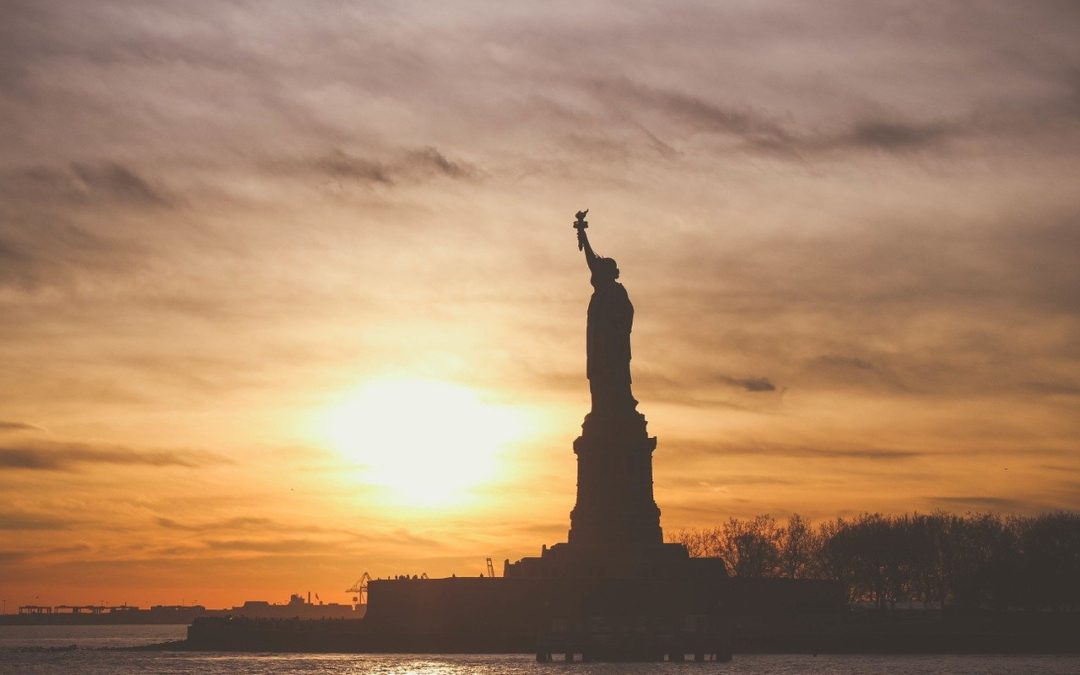
by Dan | Nov 21, 2019 | Newsletter
FAV Faithful,
As we approach #GivingTuesday and the final month of 2019, I would like to remind you why it is so important we lead the charge to protect the space for civil disagreement and other first amendment freedoms. These are not esoteric ideas that the Founding Fathers developed over two hundred years ago with no contemporary relevance. Every day, we see attacks against religious freedom, freedom of the press, and free expression. I want to take a moment to highlight a current issue trending around the world that has a significant impact on the United States if we sit on the sidelines and do nothing.
Repressive regimes in other countries routinely suppress the free expression of their people. You might want to wash your hands of that problem if you believe that it is up to the people to resolve their own challenges. Many agree with that position. However, what should you do when a foreign power attempts to limit freedom of expression here in the United States? If you are like me, a passionate advocate of the principles embodied within the Constitution, then you might want to challenge foreign government interference in our democratic way of life.
You may recall the recent efforts by the Chinese government to modify the NBA’s statements about the protests in Hong Kong. This is not new for other countries to attempt to limit American free expression by employing corporate interests. In 1980 the government of Saudi Arabia attempted to prevent a British documentary, Death of a Princess, from being aired on PBS. Fortunately, most PBS stations aired the program despite Exxon’s attempts to sway their decision. Exxon had sponsored PBS’ Masterpiece Theater since 1971 and was the largest corporate sponsor at the time and would go on to be the largest corporate sponsor in the history of public television, contributing over $250 million over 32 years. Thus, you could see that the firm might be able to sway PBS’ decision on whether to air a film that could impact business interests. PBS, to their credit, aired the documentary at the time. However, if you haven’t ever seen the film, you might be surprised to find that you also missed the 25th anniversary of its showing in 2005 and can no longer watch it. It has aired twice in the U.S. and only once in Britain, where similar corporate interests attempted to prevent the showing on British television.
Saudi has not limited attempts to stifle free expression to America. They are most aggressive against Saudi citizens routinely bullying them on social media and going so far as to cut Jamal Khashoggi into little pieces in their embassy in Turkey, causing an international outcry. They have also attempted to pressure Qatar to shut down Al Jazeera, a dominant news organization in the Middle East.
Of course, these infringements on basic freedoms are not new. We see examples across the world like currently in Iraq, which is an assault on free assembly and expression. Snipers, allegedly trained by Iran, have consistently been targeting protesters who are simply calling attention to a gross lack of possibilities for jobs and basic services while government leaders enjoy the comforts of luxury all provided by oil wealth. We see less egregious cases in the United States with conservative college students feeling constrained in their ability to voice their opinions or journalists fearing for their own safety from overzealous Trump supporters. While the scale and effectiveness of the domestic attacks may seem minor to some, we cannot allow the erosion of essential freedoms, fundamental human rights, to be walked back. Only U.S. citizens can defend the freedoms. Take a stand today and help FAV advocate and educate on the issues.
With much gratitude,
Steve & the FAV Team
In the News
How 3 Teachers Took on the Civics Gap—NEA Today—this is a great story on teaching civics in the classroom and how innovative teachers can make a difference in student learning.
Thank you to special advisor, Ed Lowry, who submitted this article that describes attributes for civic engagement: Fast Times at Capitalism High — What Young People Need to Thrive – InsideSources
Studies Released: Tools to fight disinformation
From RAND—People have access to more information than ever before. But it can still be hard to distinguish accurate information from low-quality or false content. That’s why RAND created a database of tools aimed at fighting the spread of disinformation online. These include websites run by human fact-checkers, apps that use artificial intelligence to detect bots, and games that teach players how to spot disinformation. The database is part of our Countering Truth Decay initiative, which aims to restore the role of facts and analysis in American public life.Explore the database »
Giving Tuesday
We have made tremendous strides this year in creating forums to allow for civil discourse and understanding around first amendment freedoms. Help us continue to make a difference in our diverse communities across the nation.
$1,000 offers … covers two coffee talks, two VIP tickets, recognition at reception
$500 offers … sustaining member covers the cost of one local coffee talk, free VIP ticket
$250 offers … allows purchase of campus advocacy kit – list materials
$100 offers … support local delegate kit – business cards, other promotional materials
$50 offers … allows free student or veteran attendance at Symposium
$25 offers … basic membership includes special invites & discounts at Symposium
Can’t donate today? – sign up for our free newsletter to learn more about FAV impact
FAV is proud to announce we achieved the Bronze Seal of Transparency from Guidestar already this year. Please consider contributing to FAV as part of your end of year giving.

Upcoming Events
Coming up in DC – 5 December, Times Talks – Women of the 116th Congress
This bi-partisan discussion takes place at the Newseum. Tickets cost $25, get them HERE
San Clemente, CA – January 15 in combination with the i5 Freedom Network. “Should Prostitution Be Legal?”
San Clemente, CA – February 29, Difficult Conversations Workshop – Save the Date
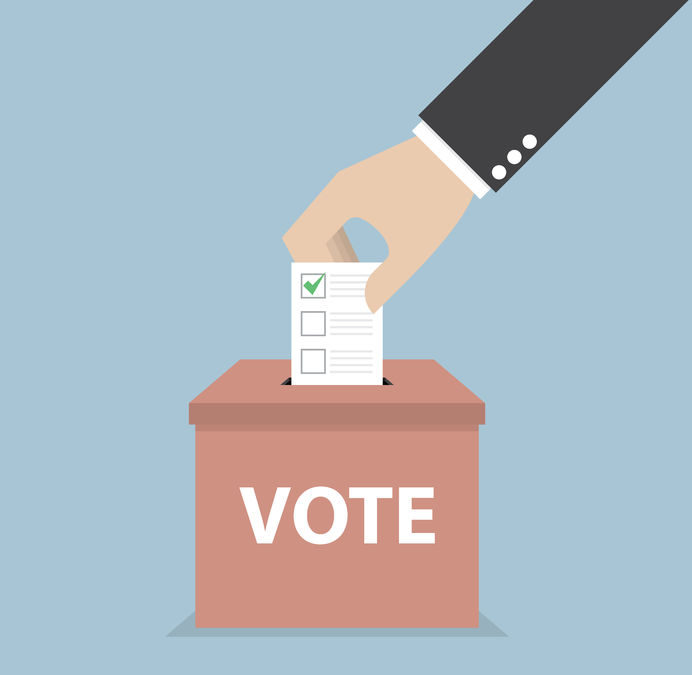
by Dan | Nov 13, 2019 | Uncategorized
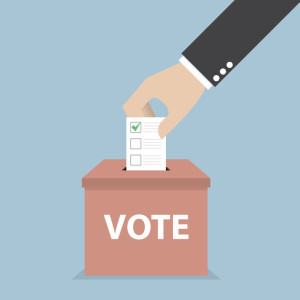 There is a long history of voter suppression for various groups in the United States, with the most common examples being African Americans and women. Although these groups have since obtained the right to vote through the 15th and 19th Amendments respectively, there still exist barriers to voting for other groups, such as convicted felons, mentally disabled individuals, elderly folks without the means to obtain new ID cards and/or go to the polls, and even college students.
There is a long history of voter suppression for various groups in the United States, with the most common examples being African Americans and women. Although these groups have since obtained the right to vote through the 15th and 19th Amendments respectively, there still exist barriers to voting for other groups, such as convicted felons, mentally disabled individuals, elderly folks without the means to obtain new ID cards and/or go to the polls, and even college students.
As the Pacific Standard argued in a December 2018 article, access to voting is one of the most important issues related to freedom of speech in a democratic society, yet we rarely discuss possible strategies for removing barriers to voting access. In regards to college students specifically, what’s preventing them from voting? Let’s unpack this little-known issue further:
Lack of Poll Accessibility
As the New York Times reported in October 2019, more and more states and municipalities are imposing restrictions on college students’ access to polls. For example, the Texas Legislature recently outlawed polling locations that don’t stay open for the entirety of the early voting period (12 days), which effectively banned on-campus polls that could only operate for some of that voting period due to funding and other resource scarcity.
Other restrictions that currently hinder the accessibility to voting rights for college students include poll parking requirements (some states – like Florida – have required polling locations to have a set number of non-permit parking spaces available) and limited/no access to early voting options.
It’s incredibly important for polls to have a presence on college campuses because students with limited access to transportation are already on campus for their classes, which presents a timely opportunity to cast their vote. Although the misconception that young people don’t vote continues to persist – despite youth turnout in 2018 being the highest it’s ever been in 25 years – college students nevertheless deserve access to polls, just like any other American citizen.
Complicated Residency Issues
For out-of-state college students, residency is difficult to establish for both financial aid and voting. Some states prohibit the use of out-of-state driver’s licenses as valid forms of ID for voting, while other states forbid the use of student ID cards as valid forms of ID for voting purposes. This means that out-of-state students may be unable to vote in the place they currently live and they’re physically unable to go home and vote in their hometowns.
Valid Voter ID Requirements
Speaking of voter ID requirements, obtaining a new ID card can be a logistical and financial challenge for many college students, regardless of their state of residency. If they don’t have a valid driver’s license from the state they attend college in, they may have to fork over more money to obtain a new form of identification just to ensure access to the polls.
For some students however, this process is too inconvenient, too costly and too time-consuming, so they end up not voting at all.
In the U.S., we should not prevent citizens from voting simply because they do not have the means to get to the polls and/or the financial means to obtain a valid form of ID. The same is true for college students: if they want to cast a vote, why shouldn’t we be helping them express themselves through the most democratic form of free speech we have in this country?
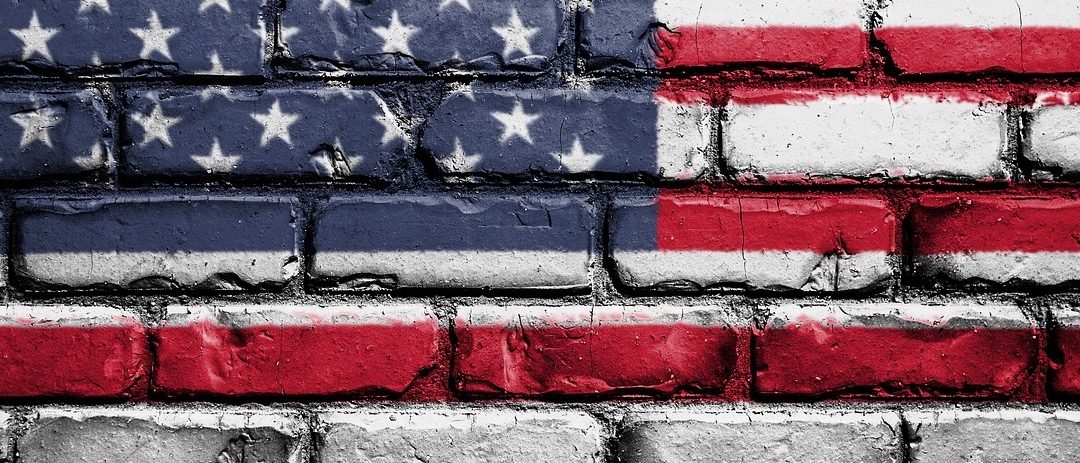
by Dan | Oct 25, 2019 | Newsletter
Community Leaders,
Do you sometimes wonder if the work you’re doing is having the impact you hope for? In early September the FAV team and I wrestled with pulling together the people and details for the National Symposium in Washington, D.C. Feeling a bit overwhelmed, I read a note via email from a name I didn’t recognize.

Benedict Cosgrove from New York City
Greetings from Brooklyn —
I just wanted to send a quick note, outside of the LinkedIn ecosystem, to express my admiration for what you and your colleagues are working toward with First Amendment Voice — and also to offer my thanks.
For the past few years, frustrated with what I’ve seen happening in Washington DC, I’ve contributed a number of opinion pieces to media outlets in the U.S. and abroad. Writing those pieces was certainly cathartic — but it’s also become clear that I’ve sort of been shouting in a bubble.
The emphasis on dialog and civil debate that FAV and similar orgs espouse hits home. I don’t disavow the arguments I’ve made in those op-eds — not all of them, anyway — but engaging with others, rather than voicing disgust and (yes) anger, does seem a far more rational way to go about embracing the responsibilities of citizenship.
So — thank you for the work you’re doing in this space, and for the straightforward, compelling questions you’ve posed on LinkedIn. They’ve gotten me thinking — rather than simply ranting.
And good luck with the symposium later this month.
With respect,
Ben
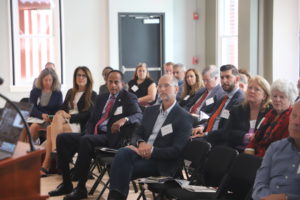
The audience listens during the 2019 Symposium as Steve Miska describes the impact Ben’s message had on him
Needless to say, Ben’s note lifted my morale instantly. I knew that FAV programming impacted people when they attended one of our events. What I struggled with was whether we were reaching people through other mediums like LinkedIn. Subsequently, Ben and I have spoken on the phone and intend to explore the impact of FAV messaging in the next episode of FAV’s podcast, Find Your Voice. Look for this new episode in the coming days. If you haven’t listened in before, check out some of our previous episodes here.
Are there people in your life who might benefit from the good news stories we share? Please recommend our free newsletter to friends and family. FAV is growing, but we depend on you to find the next person in need of toning down the rhetoric and seeking understanding within your community. Sign up here.
With Gratitude,
Steve & the FAV Team
Symposium photo gallery – Check out photos from our recent Symposium in Washington, D.C. Be sure not to miss next year’s event in Philadelphia.
In the News
Civics in the Classroom: This is a story about a high school teacher going above and beyond to teach civics in the classroom based on current events. FAV encourages leaders at all levels: community, classroom, family to engage younger generations in the basics of civic education, especially as it relates to first amendment freedoms.
Supporting Local News: One of the issues attendees at coffee talk programs hear about is the importance of local news organizations in providing transparency over local government. This Knight Foundation initiative is geared to help grow awareness about retaining and improving local news capacity.
Please plug: share our newsletter with friends and family. Encourage them to sign up! FAV wants to grow in our ability to inspire citizens.

by Dan | Oct 23, 2019 | Uncategorized
 In wake of the ongoing protests in Hong Kong and escalating tensions between China and other powerful countries like the United States, you might have heard about controversies involving American corporations like Blizzard Entertainment, Apple, Disney, several U.S.-based airlines and others that are giving in to censorship pressure from China.
In wake of the ongoing protests in Hong Kong and escalating tensions between China and other powerful countries like the United States, you might have heard about controversies involving American corporations like Blizzard Entertainment, Apple, Disney, several U.S.-based airlines and others that are giving in to censorship pressure from China.
For context, the Chinese Communist Party, which has been ruling China for 70 years now, has severe restrictions on access to information and freedom of speech for its citizens. In our increasingly globalized society, plenty of Western media, products and celebrities are surging in popularity among the Chinese. The spread of Western media — particularly films and TV shows — has been particularly concerning for the CCP, since it would like to propagate rather different values and worldly perspectives than what is expressed through Western media.
These values and perspectives include democracy, freedom of speech/assembly, and even the fundamental bodily autonomy of individuals. The United Nations is being asked to investigate Chine for allegedly being involved in the murder of ethnic minorities for the purpose of harvesting their organs for transplants.
If China is vehemently against American ideals of freedom and democracy, then why are American companies supporting China by silencing dissenters and/or taking actions aimed to appease the CCP? Let’s investigate what’s going on:
The Film and Television Industry
American companies have a relatively long history of catering to their biggest market’s preferences and demands, but appeasing China is a relatively newer phenomenon that has gained traction since the 1990s and early 2000s. This is particularly important for the film and television industry, which has faced substantial profit reductions in recent years due to Internet-enabled pirating, steep competition from video streaming platforms, and declining consumer cinema attendance rates.
To expand their market share and boost revenue, film and television companies have begun altering certain content to ensure their movies and shows will be allowed to play in mainland China. In other words, as a 2018 article in Global Media and China put it: “to improve Hollywood movies’ success in China and to secure a profitable market share of China’s box office, Hollywood studios need to have a good relationship with China.”
Censorship practices implemented to appease China include:
- Casting a white actor to portray an Asian villain (The Mandarin) in Ironman 3
- Casting popular Chinese actors and actresses in blockbuster films like X-Men: Days of Future Past and The Meg
- Removing any content that could be considered pornographic, such as Rose’s nude scene in Titanic
- Casting a white actress (Tilda Swinton) to play a traditionally Tibetan character in Doctor Strange (in addition to depicting Stephan Strange’s spiritual awakening as occurring in Nepal, instead of the original comics’ location, Tibet)
The list of movies courting Chinese viewers by including or removing certain talent, settings and storylines could go on and on — but what about other American companies beyond the film and television industry?
Recent Censorship Controversies
As China analyst Matt Schrader said in an Associated Press article published on Oct. 10, “That’s the price you pay if you want to be in the market. You have to abide by demands to censor information: anything that paints the party or its history, or its top leaders, in an unflattering light, or disagrees with their preferred portrayal of China as a country.”
This scenario has played out for numerous American companies and organizations: Apple (removing VPN apps and police map apps in places like Hong Kong), the NBA (denouncing a pro-Hong Kong tweet from the general manager of the Houston Rockets), and Blizzard Entertainment (suspending a pro Hearthstone player and withholding his prize money after making a pro-Hong Kong statement in a live broadcast).
Why Should American Citizens Care?
These are just some of the many examples of American companies defending China and/or silencing people advocating places like Hong Kong and Tibet (not to mention the hundreds of thousands — if not millions — of Uighur Muslims imprisoned in “reeducation camps” in China).
This should be tremendously alarming for anyone who cares about free speech and democracy, American or not. Is appeasing China’s Communist Party through speech suppression and all-out silencing worth the erosion of democratic ideals around the world? Of course not — which is why we must stay vigilant, continue to bravely advocate for everyone’s rights to freedom of speech and critically evaluate the companies we purchase products and services from.
Boycotting these companies — as former customers around the world have begun to — may or may not make a difference when it comes to standing up to China or caving in to their censorship demands. But it’s crucial to remain informed about what is going on beyond our borders, especially when it involves free speech issues that are subtly starting to infiltrate our lives as well.

by Dan | Oct 9, 2019 | Uncategorized
 Inspired by this year’s symposium’s theme — Polarization and the Public Square — as well as the fact that Thanksgiving family dinners are just around the corner, this month’s post is centered on civil dialogue. It’s about the notion of giving family members and friends a time and place to vocalize their viewpoints without silencing or suppressing your own, potentially conflicting viewpoints.
Inspired by this year’s symposium’s theme — Polarization and the Public Square — as well as the fact that Thanksgiving family dinners are just around the corner, this month’s post is centered on civil dialogue. It’s about the notion of giving family members and friends a time and place to vocalize their viewpoints without silencing or suppressing your own, potentially conflicting viewpoints.
The U.S. has been struggling with political polarization since its founding in the 1700s, but the 2016 Presidential Election was arguably a turning point toward deeper political division, this time within social groups as opposed to groups of people with similar political affiliations in opposition to each other.
Previously, political polarization was largely a macro concept, occurring in wider society and in mass media. Nowadays, political polarization shows up in our social media newsfeeds, family dining rooms and workplaces. So how can you articulate your perspective without clashing with someone else who disagrees? Alternatively, how can you engage in mindful listening practices when someone is saying something you completely disagree with?
To help you navigate political polarization in intimate social settings among friends, family or coworkers, here are three productive strategies for maintaining social relationships without smothering your own political beliefs in the process:
Genuinely Listen to Them
A lot of us claim that we listen to other people; but are you genuinely listening for the sake of understanding what they’re trying to say or are you listening while primarily waiting for an opportunity to step in with your counterarguments?
People can generally sense when their audience isn’t interested in what they have to say and/or the person listening is just waiting for their chance to jump in with new refutations rather than acknowledging and engaging with what they’re actually saying. To avoid contributing to perceptions that you’re not genuinely listening to someone, set aside your arguments for a few moments and focus 100 percent on what they’re saying.
You may disagree and want to argue right off the bat, but fight the urge if you ever want to understand where they’re coming from.
Agree to Disagree
Once you’ve listened to someone’s arguments and opinions, then what? In an era of deep political polarization like the one we’re currently in, it’s unlikely that either party will have a transformative, viewpoint-changing moment in the span of a single conversation.
With this in mind, try to approach conversations with family, friends and coworkers as a learning opportunity instead of a debate. If you go into a discussion with clash and a right/wrong mentality, then it’ll be a self-fulfilling prophecy and neither side will be better off after the conversation concludes.
Instead, understand that you’ll likely end up having to “agree to disagree” and focus on the respectful exchange of information as opposed to trying to “win” arguments (which will likely create more conflict than it resolves).
Focus on Commonalities
Finally, focus on beliefs you and the other person have in common. Perhaps you have radically different beliefs about the separation between church and state, but you can still agree on middle-of-the-aisle things relating to the economy or education policy.
Rather than seeking out fights with people with whom you know you’ll clash, engage in conversations when you can highlight shared beliefs, respectfully agree to disagree when beliefs diverge, and genuinely listen to the other person instead of listening just for the sake of building new arguments.
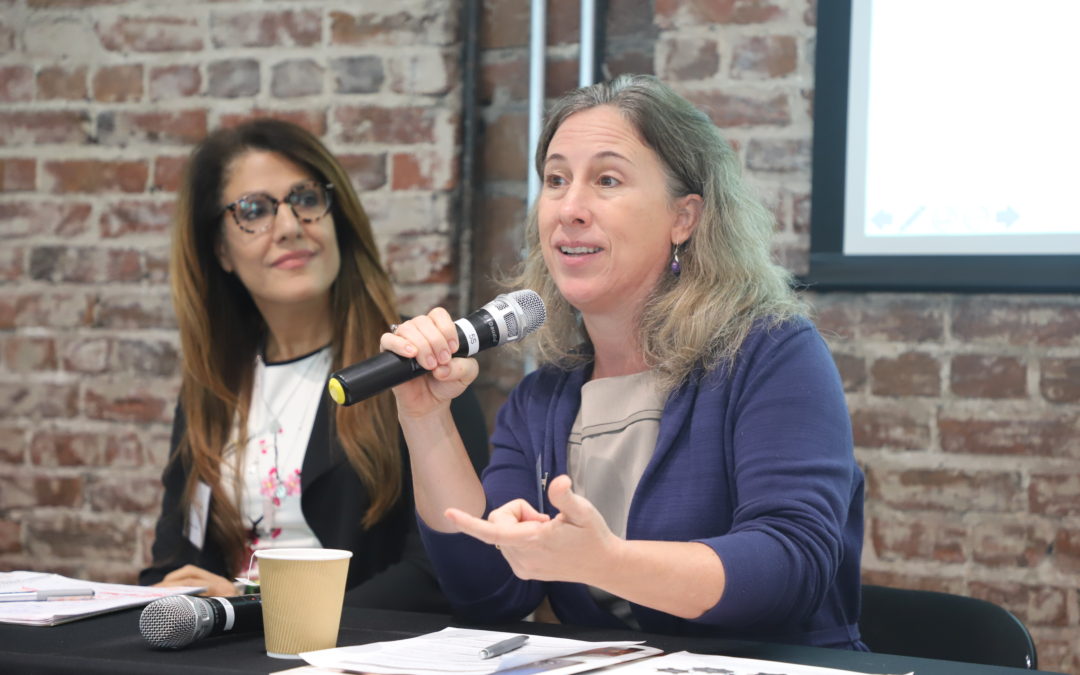
by Dan | Oct 7, 2019 | Latest News
ANNUAL FIRST AMENDMENT SYMPOSIUM ADDRESSES THE IMPACT OF POLARIZATION IN THE PUBLIC SQUARE
WASHINGTON DC—The fourth annual national symposium held by First Amendment Voice (FAV) was hosted at the National Union Building on September 21 under the theme, “Polarization and the Public Square.”
Convened around the anniversary of Constitution Day and Citizenship Day (September 17), the symposium gathered civic leaders, veterans, and students to re-affirm the importance of the First Amendment; its promises and protections for all citizens and address the impact of polarization in our public square.
Keynote speaker, Bonnie Carroll, is a retired Major of the Air Force Reserves and is the widow of an Army general who died along with seven other soldiers in a National Guard plane crash in 1992. Out of that loss, she founded the Tragedy Assistance Program for Survivors, which is today the national program providing comfort and care for all who are grieving the death of a military loved one.
“I believe strongly in connection and dialogue,” said Ms. Carroll. Describing the importance of peer support and creating shared spaces to build a network to help families experiencing loss, Ms. Carroll likened the process of building bridges to connecting people across all aisles, whether political, ideological, geographical or otherwise, experiencing it herself through her work around the world, including Yemen and Ukraine. “We are here today to be in the place where talking, listening, and institutions and civil society results in problem-solving. I believe there is magic waiting for us all in the middle ground where there is room for peaceful, non-threatening exchange.”
Ms. Carroll was joined by colleagues with backgrounds in public policy, law, veteran affairs, nonprofit and peacebuilding, and more to be a part of the discussion on social divisions and the impact of polarization as it all relates to the First Amendment. Moderating a panel on “Polarization—a Survey,” Chelsea Langston Bombino from the Institutional Religious Freedom Alliance introduced journalist and author Lu Hanessian to discuss trends in press freedom. She was joined by fellow panelists Dr. Lisa Schirch who covered trends in technology and Ross Irwin, a student at UC Berkley who brought a perspective on freedom of speech on campus who encouraged students and community leaders to participate in discussions that open the dialogue across political affiliation. Mr. Irwin even pointed to the responsibility of parents in educating children and themselves to distinguish bias in the media.
Referred by Ms. Hanessian as an ambiguous umbrella term, media as a whole has become a colossal source of information in which the responsibility relies on the consumer to distinguish and obtain differing perspectives. Directing attention to the instances in which the media has oftentimes—even unintentionally—taken away the humanity of opposing views, she warned, “Polarization goes hand-in-hand with dehumanization. By the time we’re polarized, we don’t much care for the other person.”
A working lunch equipped the forum’s participants with the necessary tools to engage in the public square with an interactive “Difficult Conversations” workshop by Kern Beare from Pop the Bubble and Pete Swanson, Director for the Office of Conflict Management and Prevention at the Federal Mediation and Conciliation.
The afternoon featured a special Town Hall forum that highlighted pioneers in forging civic consensus within their organizations moderated by Larry Rosenberg, a trial, appellate and Supreme Court litigator at Jones Day in Washington, D.C. Speakers included Janessa Gans-Wilder, Founder and Chief Executive Officer of The Euphrates Institute and Larry D. Hall, the Secretary for the North Carolina Department of Military & Veterans Affairs.
First Amendment Voice (FAV) is a non-profit, nonpartisan movement created to bring awareness, provide education and promote advocacy for citizens to exercise their First Amendment freedoms of expression, religion, press, petition, and assembly while encouraging citizens to understand, protect, and exercise those rights through ongoing programs like the annual symposium. The fourth annual FAV National Symposium was convened in partnership with Global Peace Foundation, Nation’s Mosque, Glass River Media, Veterans for American Ideals, Vale UMC, the Inman Foundation Inc, and SLC Consulting.

by Dan | Sep 25, 2019 | Uncategorized
 Recently, the FDA proposed new, more graphic warning labels for cigarette boxes. The last major change to warning labels for tobacco products occurred 35 years ago and the new labels would take up half the cigarette box to warn potential users of the dangers of smoking, such as lung cancer, heart disease, impotence, and eyesight problems, to name a few.
Recently, the FDA proposed new, more graphic warning labels for cigarette boxes. The last major change to warning labels for tobacco products occurred 35 years ago and the new labels would take up half the cigarette box to warn potential users of the dangers of smoking, such as lung cancer, heart disease, impotence, and eyesight problems, to name a few.
As expected, tobacco companies are not happy with the latest FDA proposal. The last time the FDA tried changing warning labels to include photos of cadavers and diseased lungs in 2012, the industry fought back in court and won on the basis of free speech.
But do warning labels and restrictive advertising guidelines predicated on public health actually violate these companies’ First Amendment rights? Let’s explore this issue further:
Tobacco Industry vs. the FDA
There has always existed a contentious relationship between the FDA and tobacco industry, whether that involved advertising guidelines potentially infringing on rights related to commercial speech or health claims of new tobacco products like e-cigarettes and vape juice. Throughout the past few decades, the federal government and several state governments have filed lawsuits against cigarette manufacturers on the basis of false advertising claims (e.g., wealth, fame, power symbols attached to tobacco mascots) and targeting youth (such as the ongoing Juul scandal).
Advertising is inherently intertwined with the First Amendment as a form of commercial speech, and warning labels intended to deter people from smoking can be bad for business. While adults should arguably be free to make their own life choices with what they do or do not consume, the inception and expansion of digital advertising has considerably complicated matters for both tobacco companies and the FDA.
Tobacco Companies Lobbying Against New Labels
Tobacco companies are back in court for the latest battle over warning labels on their products. For instance, the manufacturer of Camel and Newport cigarettes says it supports public awareness campaigns, but it claims that “the manner in which those messages are delivered to the public cannot run afoul of the First Amendment.”
Some legal analysts have argued in favor of banning tobacco advertising altogether, but this could lead to a slippery slope scenario in which many commercial products or services deemed unfavorable by a majority of the public could be shut out as well. The latest legal battle between the FDA and tobacco companies likely won’t be resolved for many months or years, but in the meantime: what do you think about the relationship between commercial free speech rights and public health? How can the government balance the autonomy of adults to make their own consumption choices without ignoring the potential benefits of deterring the public from health-harming, addictive habits like smoking?
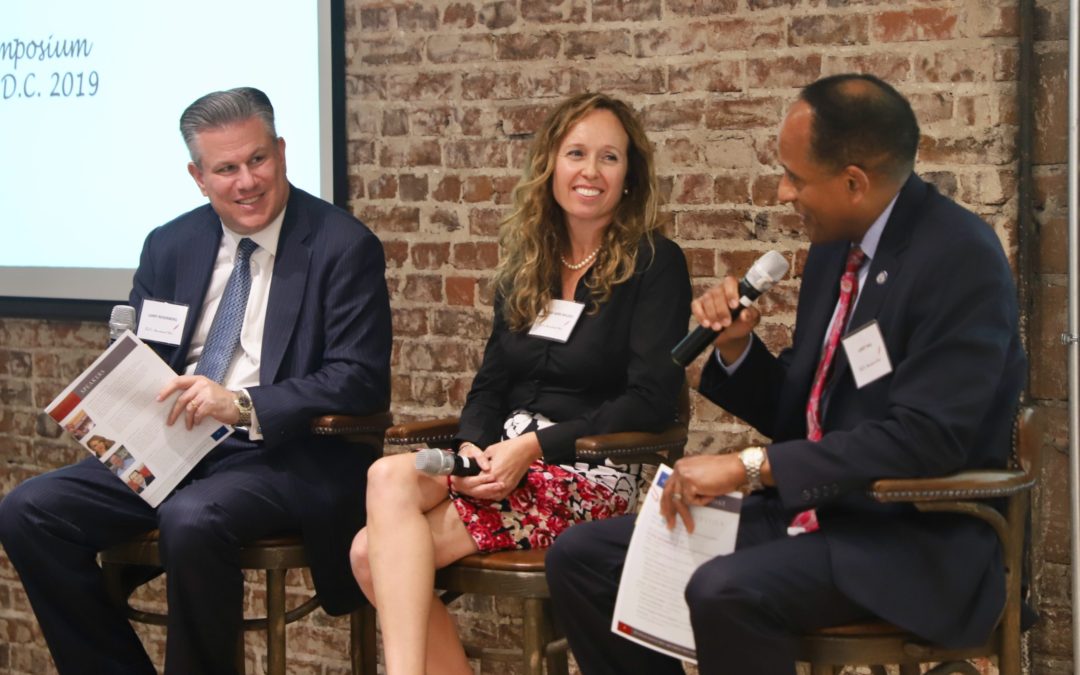
by Dan | Sep 25, 2019 | Gallery
Our Fourth Annual National Symposium was hosted in our Nation’s Capital, Washington, DC at the National Union Building on September 21st.
The VIP experience included a Friday evening tour of the Capitol Building on September 20th. Our theme this year was “Polarization & the Public Square,” where we convened to re-affirm the importance of the First Amendment; it’s promises and protections for all citizens and addressed the impact of polarization in our public square.
The day began at 9:00am with a continental breakfast and was followed by a morning session that hosted a panel discussion on social divisions and the impact of polarization as it all relates to the First Amendment. A working lunch equipped participants with the necessary tools to engage in the public square. During the afternoon, we held a special Town Hall forum that highlighted pioneers in forging civic consensus within their organizations.

by Dan | Sep 11, 2019 | Latest News, Upcoming Events
ANNUAL FIRST AMENDMENT VOICE SYMPOSIUM TO ADDRESS THE IMPACT OF POLARIZATION IN THE PUBLIC SQUARE
WASHINGTON DC—The fourth annual national symposium held by First Amendment Voice will be hosted at the National Union Building on September 21 under the theme, “Polarization and the Public Square.” Convened around the anniversary of Constitution Day and Citizenship Day (September 17), the symposium is meant to remind citizens of their important role in governance and the need to engage in order to promote the vitality of society. Civic leaders, veterans, and students will assemble to address the impact of polarization in our public square.
The symposium will feature esteemed speakers including Ms. Bonnie Carroll, founder of the Tragedy Assistance Program for Survivors, a nonprofit providing comfort and care for all who are grieving the death of a military loved one. Ms. Carroll will be joined by colleagues with backgrounds in public policy, law, veteran affairs, nonprofit and peacebuilding to be a part of the discussion on social divisions and the impact of polarization as it all relates to the First Amendment. Sessions will also include a panel on technology as it impacts first amendment freedoms, a working lunch to equip participants with the necessary tools to engage in the public square, as well as a special Town Hall forum that will highlight pioneers in service within organizations that offer others the opportunity to serve in civic capacities where volunteers check partisanship at the door.
First Amendment Voice (FAV) strives to educate and raise awareness about trends in the First Amendment space, including media bias and technology as it impacts information consumption and discourse. The annual symposium will incorporate a “Difficult Conversations” workshop while a Federal Mediation and Conciliation Service trainer will give people tools for engagement in the public square. Ultimately, participants will leave inspired that their voices matter, and they can lend their opinions to important conversations in their communities.
FAV is a non-profit, nonpartisan movement created to bring awareness, provide education and promote advocacy for citizens to exercise their First Amendment freedoms of expression, religion, press, petition, and assembly while encouraging citizens to understand, protect, and exercise those rights through ongoing programs like community coffee talks and the annual symposium. Executive Director, Steve Miska, served in the Army for 25 years and has since conducted nonpartisan local programming across the country to inspire people to “Find Their Voice.”
We found that many people felt afraid to offer an opinion about sensitive issues in the public square, fearing retribution. They ranged from college students to members of different faith communities. We also found others who didn’t think their voice mattered, mostly young people, feeling that elected officials and older generations wouldn’t listen to their opinions. FAV views both trends, fear, and apathy, as threats to our form of government. The health of the republic rests on the vibrancy of its citizenry.
FAV aims to inspire people to lend their voice to important discussions in their community. “Citizenship is not a spectator sport!” says Miska. “Founded on a motto of E Pluribus Unum, (out of many, one) we have more in common with each other than we think, if we could only drop the partisan contempt and look for common ground.”
Learn more about First Amendment Voice and the upcoming symposium at www.firstamendmentvoice.org.
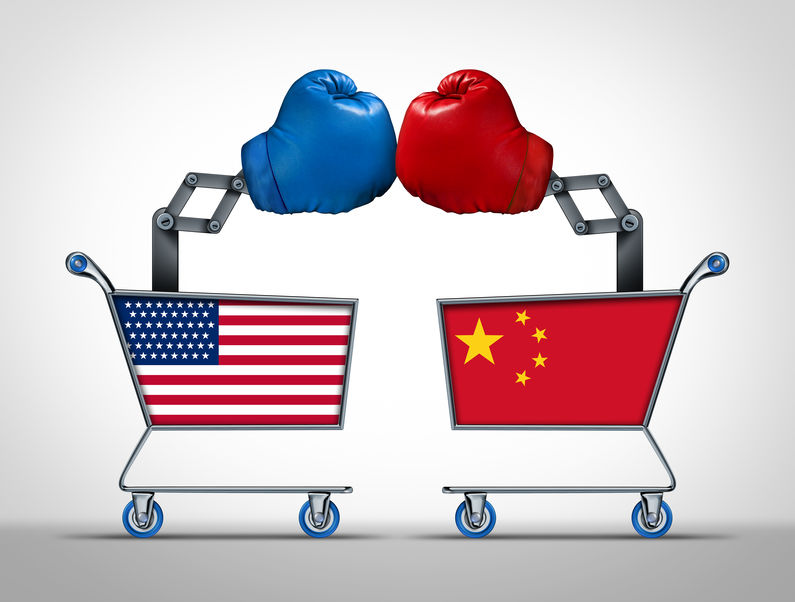
by Dan | Sep 11, 2019 | Uncategorized
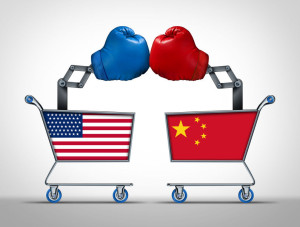 China is on many of our minds these days, with the rollercoaster-like trade war between China and the United States and the unrest in Hong Kong changing on a near-daily basis. As Americans, we’re fortunate to have freedom of speech and other essential liberties guaranteed by our nation’s foundational documents, but Chinese citizens are not as fortunate, as demonstrated by the incredibly restrictive censorship policies enforced by the Chinese Communist Party (CCP). China may be all the way across the Pacific Ocean, but its online censorship policies have numerous implications for Chinese and non-Chinese citizens alike. Let’s explore some of the specific policies and trends to get a better idea of what China’s doing to restrict freedom of expression in digital spaces both within and beyond China’s borders:
China is on many of our minds these days, with the rollercoaster-like trade war between China and the United States and the unrest in Hong Kong changing on a near-daily basis. As Americans, we’re fortunate to have freedom of speech and other essential liberties guaranteed by our nation’s foundational documents, but Chinese citizens are not as fortunate, as demonstrated by the incredibly restrictive censorship policies enforced by the Chinese Communist Party (CCP). China may be all the way across the Pacific Ocean, but its online censorship policies have numerous implications for Chinese and non-Chinese citizens alike. Let’s explore some of the specific policies and trends to get a better idea of what China’s doing to restrict freedom of expression in digital spaces both within and beyond China’s borders:
1. You Can’t Access Social Media in China Without a VPN
Many Western social media sites like Twitter, Facebook, Instagram and Youtube are almost completely inaccessible within China unless you use a virtual private network (VPN). China refers to its online censorship policies as the “Golden Shield” but critics alternatively call it the “Great Firewall of China” to highlight just how much the free flow of information is negatively affected. China is blocking websites that exist primarily to encourage users to exchange ideas and freely comment on anything from community events to politics. China also blocks many websites with content deemed inhospitable or downright threatening to the CCP, such as Amnesty International and several university websites (the latter of which makes it difficult for international students to remain enrolled in their distance learning programs).
2. The CCP Advertises on Social Media
Ironically, China Central Television (CCTV) — a prominent state-controlled media outlet in China — has been sponsoring ads on sites like Youtube to presumably mitigate negative international perceptions of the CCP. China’s government relies heavily on propaganda to not only control the flow of knowledge and information within their own country, but also to restrict the outflow of unfavorable news to other countries.
Furthermore, Google and Facebook recently began cracking down on CCP-sponsored content in the wake of the Hong Kong protests and tremendous amounts of propagandistic disinformation coming from CCP supporters and possibly the Chinese government itself.
3. Criticizing China Can Result in Jail Time
In 2018, an 80-something Chinese dissident vlogger was arrested for speaking out against the government’s policies in an interview with Voice of America. Before his microphone was cut by the police arresting him, Sun Wenguang said, “I am entitled to freedom of speech.”
This is just one of countless examples of anti-government dissidents being arrested and sentenced (some for 12+ years) for simply speaking out against policies they disagree with in China. Without protections similar to the U.S.’s First Amendment, Chinese citizens are routinely denied the right to freedom of expression by their own government, especially in online spaces.
4. #MeToo Was Blocked in China – So Activists Found an Alternative
A final example of Chinese online censorship can be seen through the #MeToo movement. When the CCP prohibited the use of #MeToo (in English and Chinese), clever-thinking activists switched to using rice and bunny emojis because the Chinese pronunciation of rice (“mi”) and bunny (“tu”) sound similar to #MeToo. There doesn’t appear to be an end in sight to China’s oppressive censorship policies, especially now that the CCP and its supporters are expanding censorship efforts across the globe. It serves as a stark reminder of the necessity of permanently protecting citizens’ freedom of speech here in the United States, so no politician or party can ever trample on these fundamental liberties in the future.



 There is a long history of voter suppression for various groups in the United States, with the most common examples being African Americans and women. Although these groups have since obtained the right to vote through the 15th and 19th Amendments respectively, there still exist
There is a long history of voter suppression for various groups in the United States, with the most common examples being African Americans and women. Although these groups have since obtained the right to vote through the 15th and 19th Amendments respectively, there still exist 



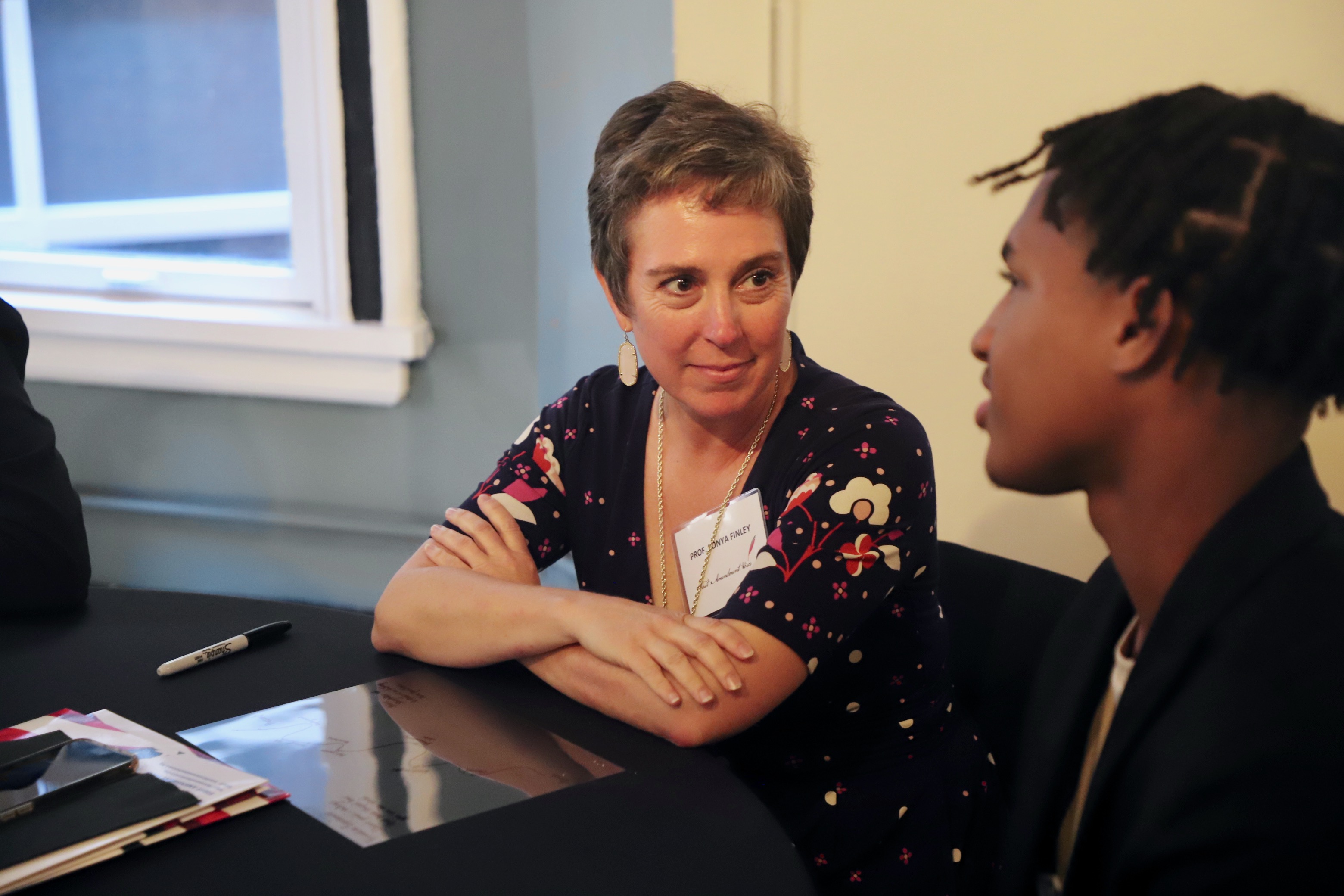
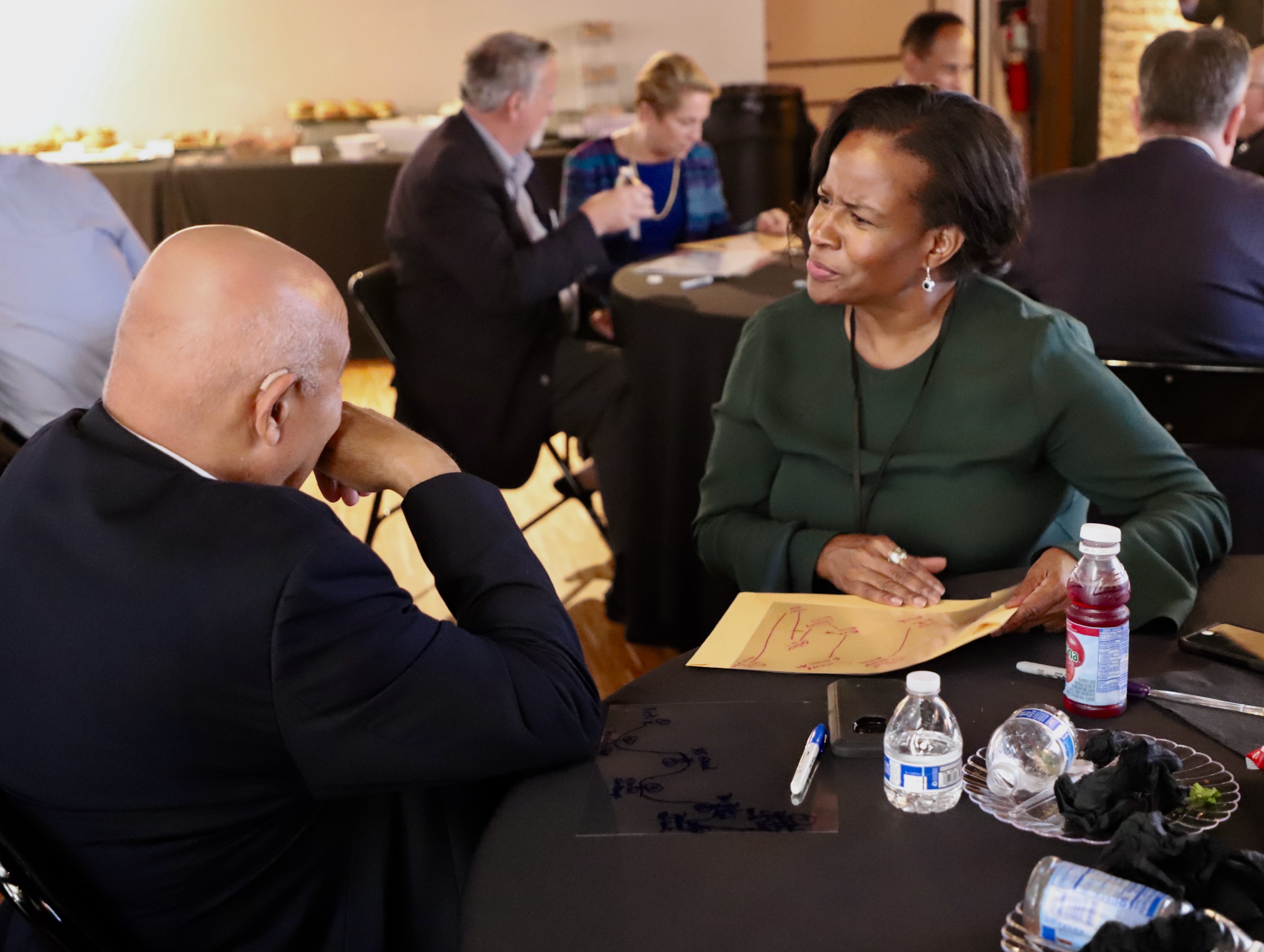
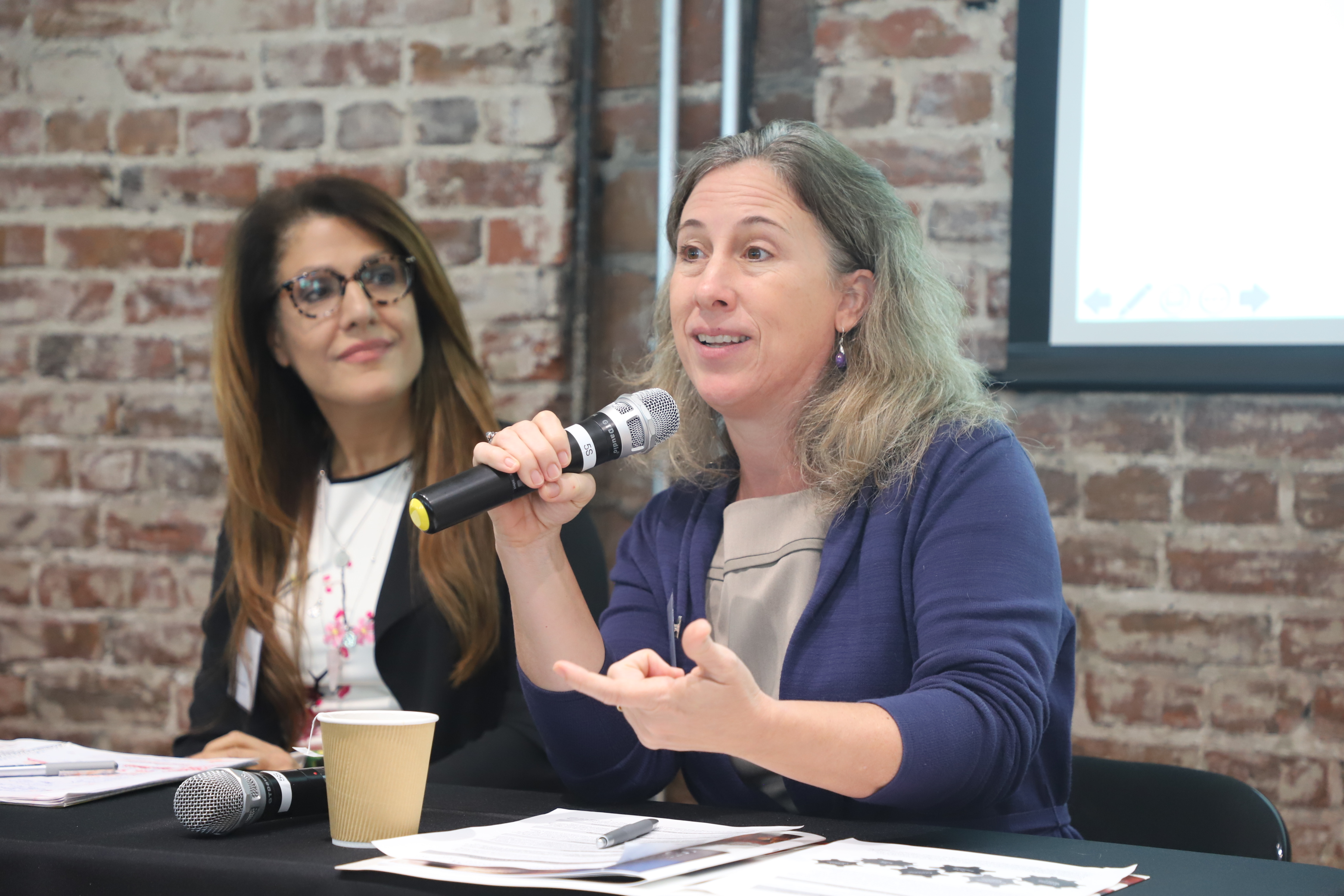
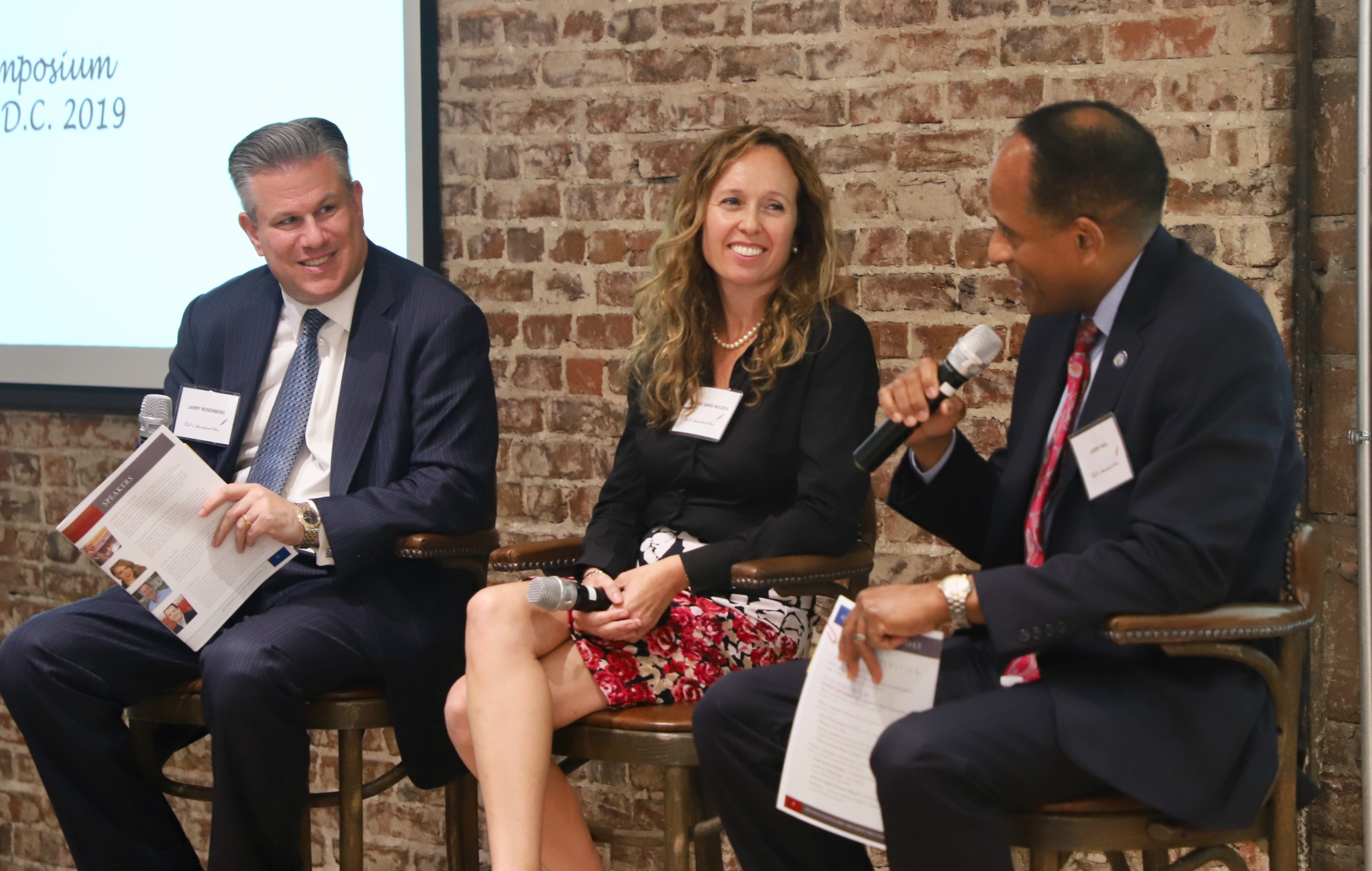

 In wake of the ongoing protests in Hong Kong and escalating tensions between China and other powerful countries like the United States, you might have heard about controversies involving American corporations like Blizzard Entertainment, Apple, Disney, several U.S.-based airlines and others that are
In wake of the ongoing protests in Hong Kong and escalating tensions between China and other powerful countries like the United States, you might have heard about controversies involving American corporations like Blizzard Entertainment, Apple, Disney, several U.S.-based airlines and others that are 
 Inspired by this year’s symposium’s theme —
Inspired by this year’s symposium’s theme — 

 Recently, the FDA proposed new, more
Recently, the FDA proposed new, more 
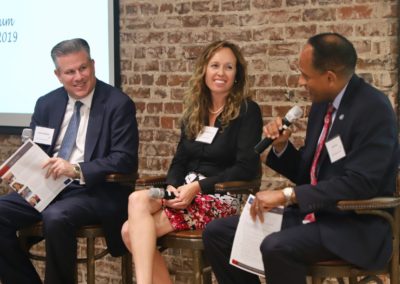
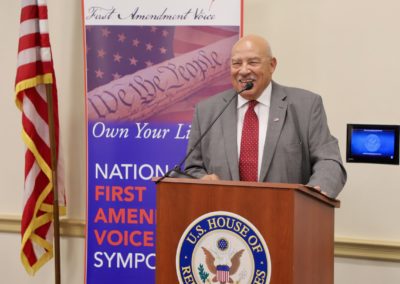
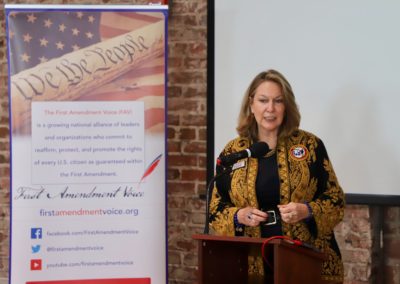
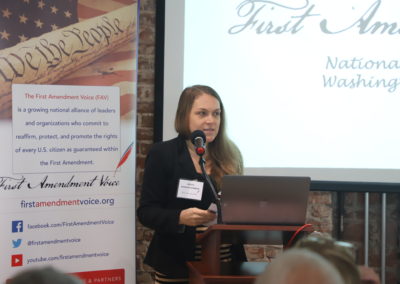
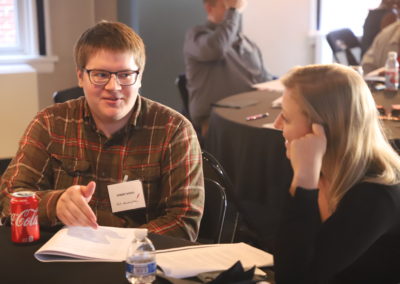
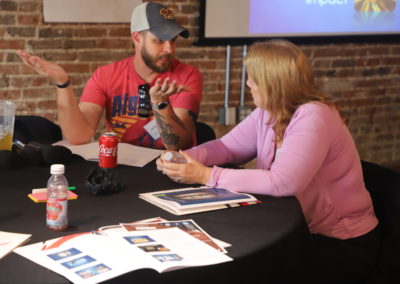
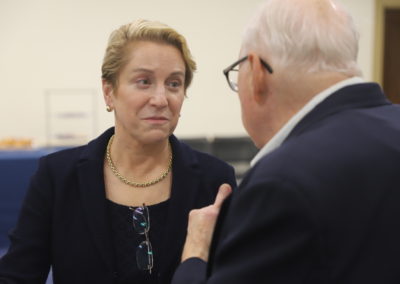
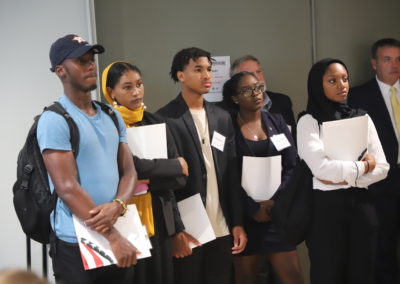

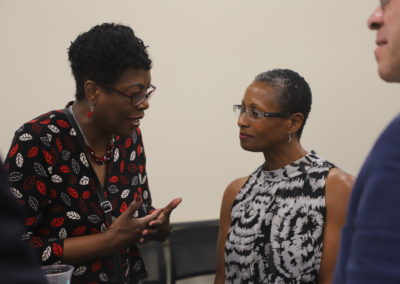
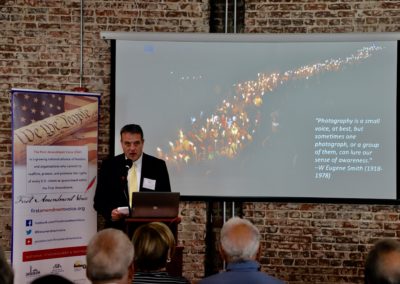
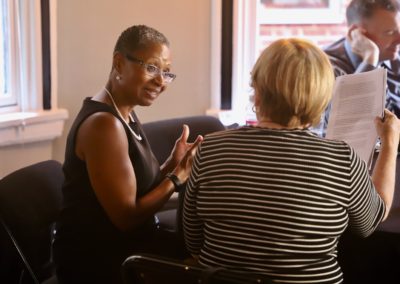
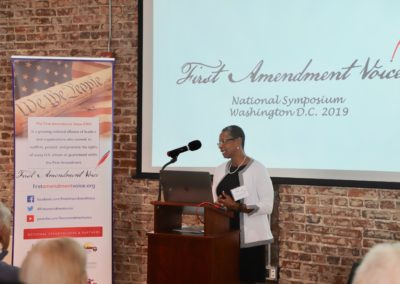
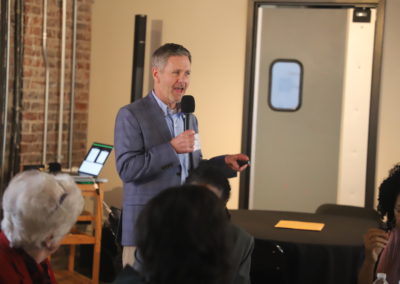
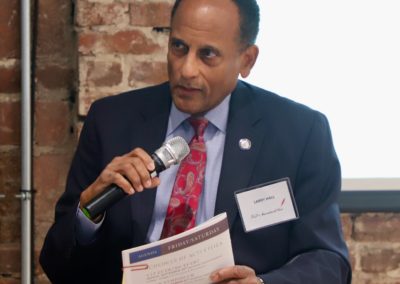
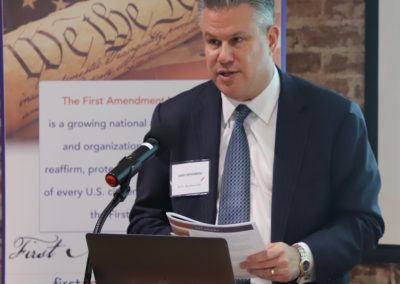
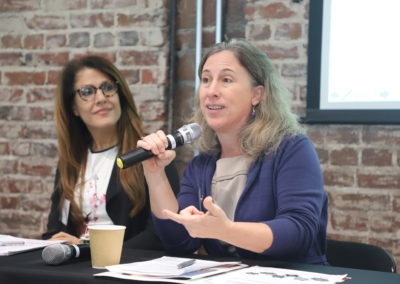
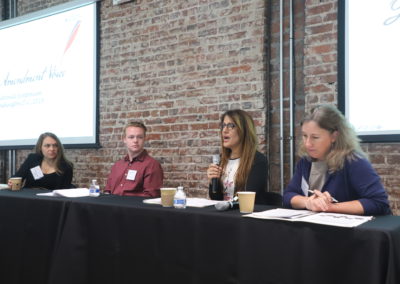
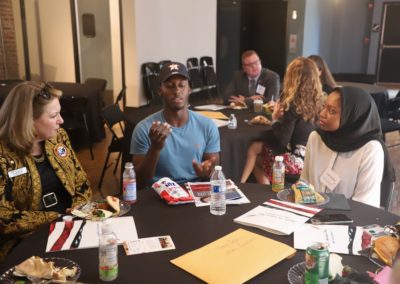
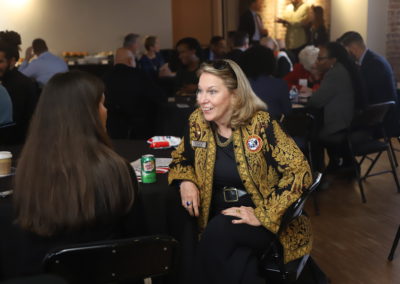
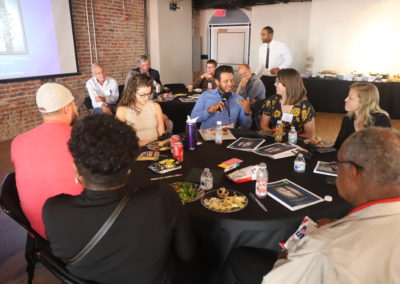
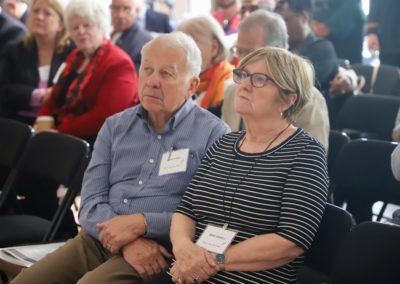

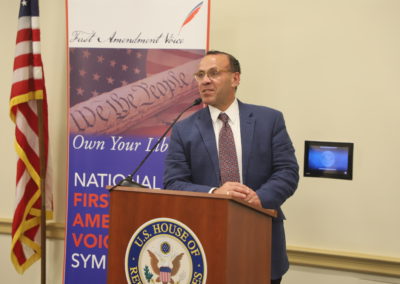
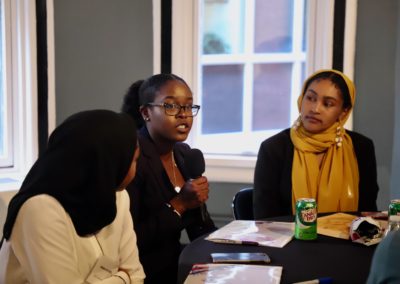
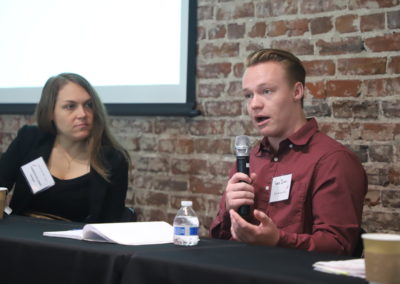
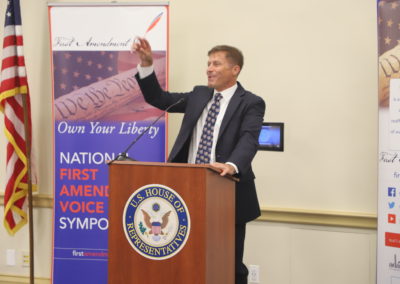
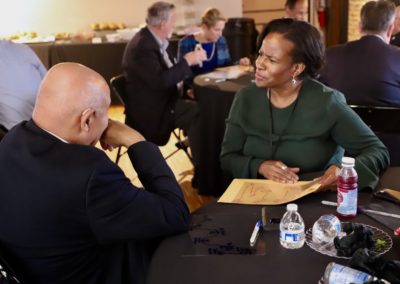
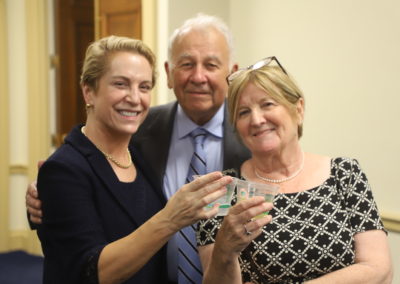
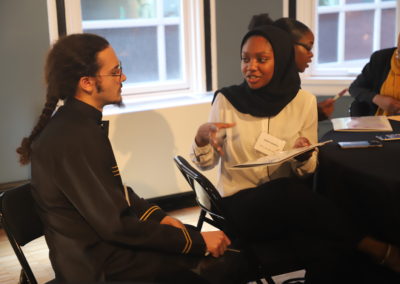
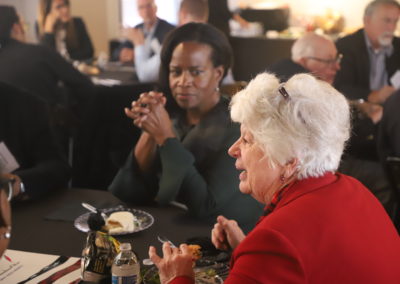
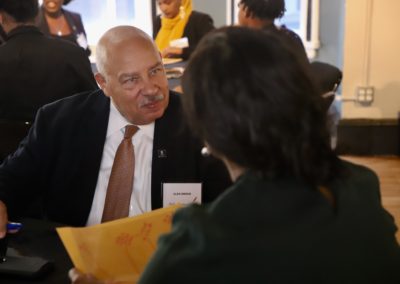
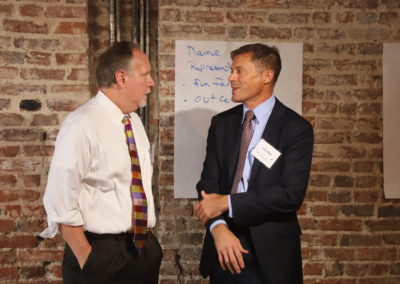


 China is on many of our minds these days, with the rollercoaster-like trade war between China and the United States and the unrest in Hong Kong changing on a near-daily basis. As Americans, we’re fortunate to have freedom of speech and other essential liberties guaranteed by our nation’s foundational documents, but Chinese citizens are not as fortunate, as demonstrated by the incredibly restrictive censorship policies enforced by the Chinese Communist Party (CCP). China may be all the way across the Pacific Ocean, but its online censorship policies have numerous implications for Chinese and non-Chinese citizens alike. Let’s explore some of the specific policies and trends to get a better idea of what China’s doing to restrict freedom of expression in digital spaces both within and beyond China’s borders:
China is on many of our minds these days, with the rollercoaster-like trade war between China and the United States and the unrest in Hong Kong changing on a near-daily basis. As Americans, we’re fortunate to have freedom of speech and other essential liberties guaranteed by our nation’s foundational documents, but Chinese citizens are not as fortunate, as demonstrated by the incredibly restrictive censorship policies enforced by the Chinese Communist Party (CCP). China may be all the way across the Pacific Ocean, but its online censorship policies have numerous implications for Chinese and non-Chinese citizens alike. Let’s explore some of the specific policies and trends to get a better idea of what China’s doing to restrict freedom of expression in digital spaces both within and beyond China’s borders:



